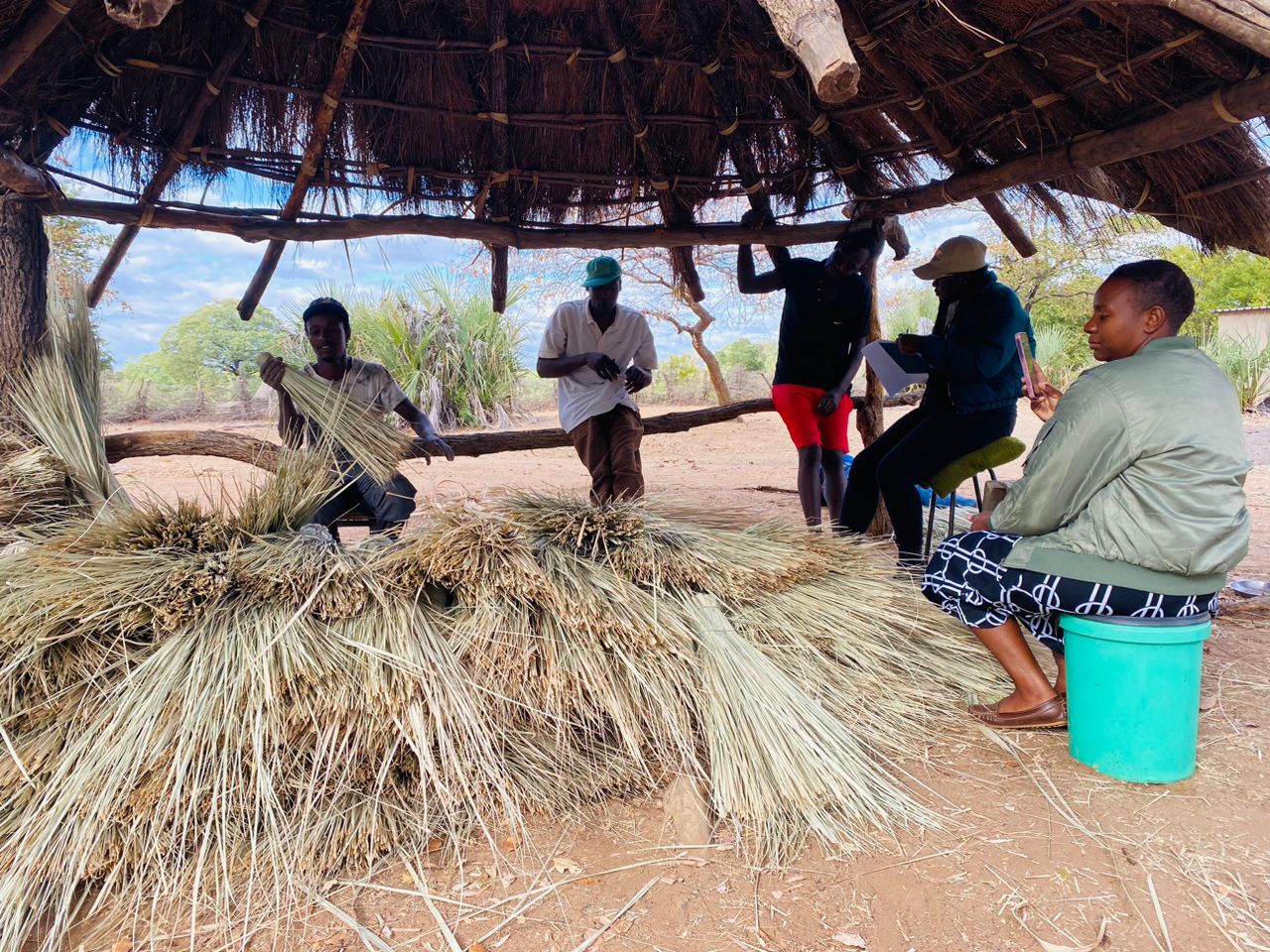Zimbabwean Youth Join Biodiversity Economy through AWF Training Program

The ilala palm (Hyphaene petersiana), native to Africa
Nestled approximately 290 km northeast of Harare, Zimbabwe's capital, lies Muzarabani District. This region in Mashonaland Central, bordering Mozambique, endures a harsh climate characterized by scorching summer temperatures and a savanna landscape. Despite its diverse wildlife, including elephants, Muzarabani faces significant challenges like climate change and human-wildlife conflict, leading to poverty and unemployment.
To address these challenges, the African Wildlife Foundation (AWF), with the help of partners, has implemented training programs to empower young people and women in Muzarabani. The training focuses on modern enterprise techniques for the sustainable management and utilization of non-timber forest products (NTFPs), such as the ilala palm.
The ilala palm (Hyphaene petersiana), native to Africa and found in savannas and woodlands, thrives in Muzarabani. Traditionally used to make brooms, baskets, mats, and other woven products, this versatile plant presents a unique opportunity for sustainable income generation.
As AWF joins the global community in commemorating World Youth Skills Day under the theme “Youth Skills for Peace and Development,” we celebrate the entrepreneurial spirit of young people in Muzarabani who are contributing to a sustainable future.
In November 2023, at least 120 people from Muzarabani Wards 19 and 27 benefited from training under the ‘Utariri: Integrated, Biodiversity, Climate and Livelihoods Program,’ funded by the Swedish International Development Agency (SIDA), Danish International Development Agency (DANIDA), and other private donors. This training aimed to promote sustainable management and utilization of natural resources, restore biodiversity, support climate action, and build community resilience in the Zambezi Valley. AWF partnered with the Ministry of Women Affairs, Community Development, Small to Medium Enterprises, and the Ministry of Youth Empowerment, Development, and Vocational Training for this initiative.
The program's impact is evident in the success stories of Tuksoti Muringai (30) and Philmon Mativenga (29), both from Muzarabani Ward 19. They have successfully ventured into making handmade ilala brooms.
“I grew up seeing the abundant ilala in Muzarabani but never thought of utilizing this hidden treasure,” Muringai explained. “Drawing inspiration from seasoned weavers who were making a fortune out of ilala, 2019 was a pivotal year for me as I started making brooms for sale at Harare’s biggest market, Mbare.”
Selling each broom for USD 0.75 at the market, Muringai earns about USD 500 per month. “I have mastered the art of crafting brooms and make up to 1,500 brooms sometimes,” he said. “Although things get tough at times, I have been managing to take care of my three children with the income I get.”
Mativenga echoed Muringai’s sentiments, stating that he makes about 2,000 brooms per month depending on market demand, earning around USD 800 when demand is high. Both entrepreneurs acknowledged that the AWF training was crucial for developing their businesses.
“The AWF training provided powerful insights on how I can make my business unique with a focus on marketing, record keeping, business principles, ethics, and business proposal writing,” Mativenga reflected. “We are currently in the process of setting up a formalized group to advance our ventures using the knowledge from the training. If we remain focused, we can achieve what we want.”
Muringai adds that the ilala handmade broom venture has created a localized economy in Muzarabani with a clear division of labor. Women gather ilala from the wildlands, prepare semi-finished raw materials, and sell them to local broom makers. Young men are involved in weaving brooms, baskets, hats, and mats, producing brooms in large quantities, and fulfilling other orders as needed.
However, the path to prosperity is not without its challenges. Limited market access, transportation difficulties, and a lack of knowledge for scaling up the business pose significant hurdles. "The biggest obstacle is getting our products to Harare," Muringai explains. "Having buyers come directly to Muzarabani would be a game-changer, and we'd be open to negotiating prices."
The COVID-19 pandemic further impacted the sale of other ilala products, like baskets, which were more popular before the pandemic. "We used to make a good living selling baskets, but sales plummeted during the lockdowns when borders were closed," Muringai laments. "Unfortunately, the demand for other ilala products hasn't recovered."
Daniel Makaza, the AWF Community-Based Natural Resources Management Officer, identified the need for improved weaving skills. "The ilala palm offers a significant opportunity," Makaza explained. "It's relatively resilient to environmental factors and climatic conditions, making it a reliable resource." He further emphasized the importance of establishing commodity associations. These associations can connect young entrepreneurs with potential markets, fostering business growth and market exposure.
Through the AWF program and its partnerships, the initiative aims to empower women and youth by equipping them with the skills and knowledge to build sustainable livelihoods and increase community resilience. This fosters a deeper sense of community stewardship. By raising awareness of the value of biodiversity, the program empowers communities to contribute to its protection while simultaneously reaping the economic benefits of responsible resource management.